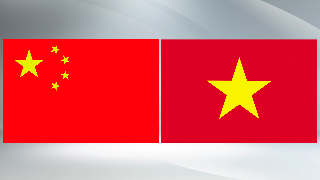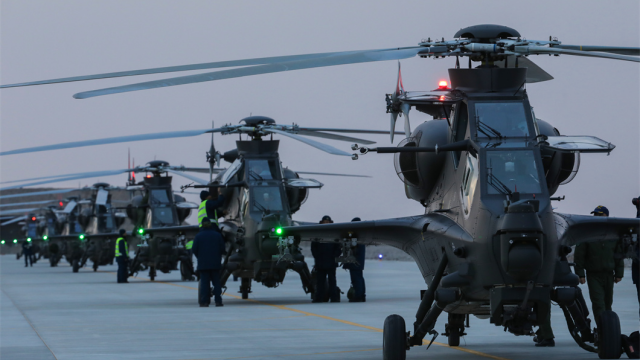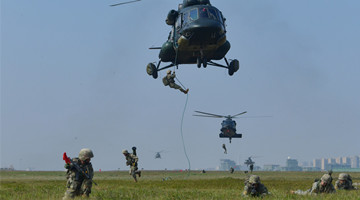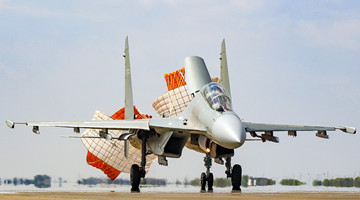By Gao Shangtao
On April 1, the Pentagon suspended the delivery of parts and program materials to Turkey that it needs for standing up the F-35 jet fighter program there. Deliveries would not resume until Turkey forgoes the planned purchase of the Russian-made S-400 antiaircraft system. This marked the beginning of the U.S. to put warnings into practical actions which would trigger strong dissatisfaction from Turkey and deepen the cracks in their bilateral relations.
The U.S. finally made this decision directly because of its frustration against Turkey’s insistence on buying the Russian S-400 antiaircraft system. In December 2017, Turkey and Russia signed a loan agreement for purchase of S-400 systems, making Turkey the first NATO country to buy and deploy the Russian anti-aircraft missile system. The U.S. had voiced concern that it might provide Russia with the opportunity to learn how to track and discover the F-35 fighter jet, and compromise the security of NATO’s air defense system. Therefore, the U.S. was firmly against Turkey’s purchase of S-400 system from Russia.
In fact, U.S. President Trump had signed a defense authorization act to prohibit the delivery of F-35 fighter jets to Turkey in 2018. However, it was not scrupulously implemented by the F-35 Joint Program Office (JPO). In March, four U.S. senators introduced a bipartisan bill to prohibit the delivery of F-35 fighter aircraft to Turkey until the U.S. government certifies that Ankara gives up the purchase of a Russian S-400 air defense system. However, the Turkish government responded that the purchase of the most advanced fighter aircraft was a done deal and Ankara could not go back on its word.
Despite U.S. strong objections, Turkey’s obstinate stance embodied deep-seated contradictions between the U.S. and Turkey. Turkey wants to use its cooperation with Russia, especially in the highly sensitive military field, to demonstrate to and counter the United States, seeking to become a more independent presence.
The relationship between the U.S. and Turkey has continued to face drawback since the Turkey’s attempted military coup in 2016. Turkey accused the U.S. of supporting the Gülen movement, which attempted to launch a coup in Turkey. Turkey’s requests to extradite Fethullah Gulen were rejected by the U.S.. In October 2016, the Turkish government arrested American pastor Andrew Brunson and charged him with aiding an attempted coup against President Recep Tayyip Erdogan. The U.S. had repeatedly urged Turkey to release the pastor and Turkey did not agree. The subsequently imposed personnel and economic sanctions by the U.S. resulted in a sharp depreciation of the Turkish Lira, the currency of Turkey, and had a serious impact on Turkey’s economic development. Since then, bilateral relations have gradually soured.
In addition to the Gülen incident, the U.S. has repeatedly challenged Turkey’s core interests on issues such as the Kurdish forces in Syria, leading to intensified contradictions between the U.S. and Turkey. Turkey regards the People’s Protection Units (YPG), a mostly Kurdish militia in Syria, as a branch of the Kurdistan Workers’ Party (PKK), a domestic terrorist organization. For Turkey, the People’s Protection Units must be removed. So despite the massive pressure from public opinion, it launched the Olive Branch Operation and entered Syria to fight against Kurdish forces in January 2018. Seeing the Kurdish forces in Syrian as representatives of the Syrian moderate opposition, the U.S. government has always supported Kurdish forces to fight against the Islamic State and protected them from the Turkish armed forces. Such confrontational attitude and behavior have made both sides much vexing.
Under such conditions, in order to increase its bargaining chip and weight with the United States, Turkey is gradually moving closer to Russia, who has a major strategic interests to compete with the U.S.. For example, Turkey is working with Russia to launch the Astana process on Syrian peace, in opposition to the United States-led Geneva process. At the same time, Turkey has continued to strengthen its cooperation with Iran, the “opponent” of the U.S. in the Middle East, to contain the U.S. in exchange for its respect and concessions. Countries such as Russia and Iran also took the opportunity to disturb NATO and continued to deepen strategic cooperation with Turkey. For example, Russia aggressively sold advanced S-400 systems to Turkey and promised localized production. The U.S. responded by further increasing sanctions and pressure on Turkey to force Turkey to “change its mind.”
But the wheel that does the squeaking is the one that gets the grease. Wishing to force the U.S. to meet Turkey’s security claims on issues such as the Kurdish forces in Syria and gain a bigger say in the Middle East, Turkey may not easily surrender to U.S. pressure. Turkey previously indicated that it would receive the S-400 system in July. If Turkey and the U.S. still cannot reach a satisfactory agreement, the deployment of the S-400 system in Turkey would become a reality. This open antagonism between the U.S. and Turkey has put their fragile friendship in danger and may even deepen the cracks among NATO members.
(The original article was published on PLA Daily on April 11, 2019. It was edited and translated into English by China Military Online)









